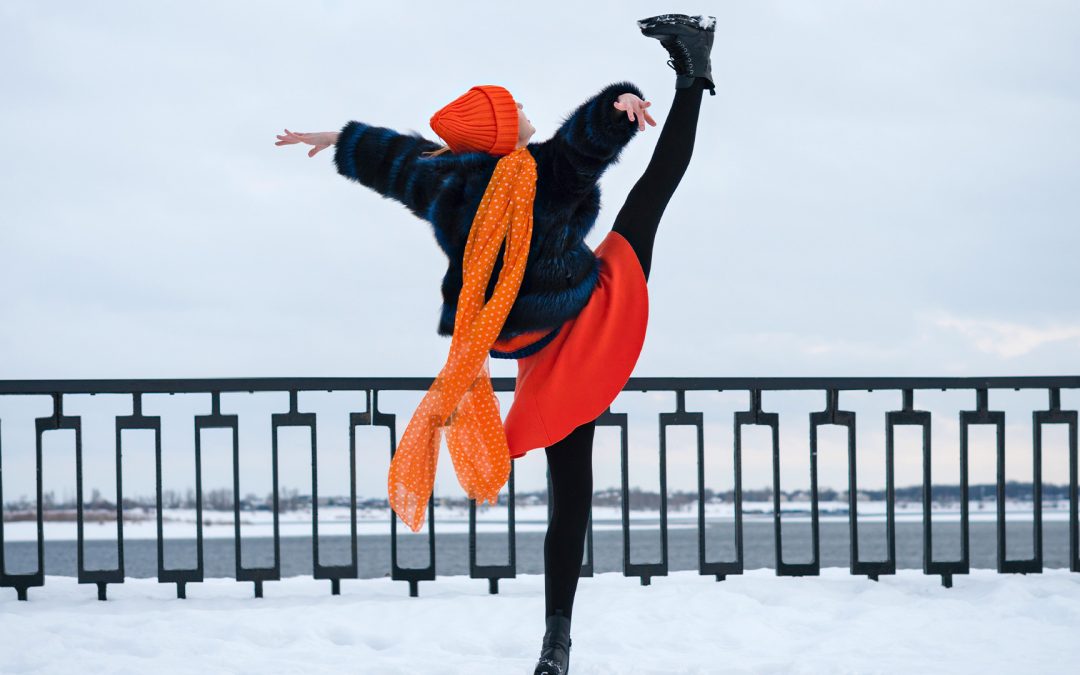Now is a great time to reflect on your practice and adapting for the colder seasons is essential. From booking winter shows to thinking about keeping warm during rehearsals, it’s time to get winter-ready.
The cold weather brings its own set of challenges and making sure you have a healthy performance training routine is essential.
In this blog, we’re investigating how performing arts professionals can protect their mental and physical health while working in the winter.
1. Stay Hydrated
Staying hydrated isn’t just for summer! Keeping your fluids topped up in the winter is also critical, especially if your practice involves lots of physical activity. Make sure you keep a water bottle handy wherever you go.
2. Keep Nourishing Yourself
Similarly, you should aim to eat a balanced diet, so you get enough vitamins and nutrients while working on your discipline.
A diet rich in whole foods and varied ingredients is like fuel for your body, providing the energy and good immune function to keep you invigorated and protected from any pesky winter colds.
Beat the sniffles by eating lots of brightly coloured fruit and veggies and healthy fats (Omega-3s).
3. Swap To Winter Gear
Depending on your career, you may need to swap to winter clothes and equipment.
For example, outside performers (e.g. dancers, musicians, or choir singers) should layer up with thermals under their costumes where possible.
Cold, dry air can affect your respiratory health and vocal cords, so singers should also wrap up to prevent any sore throats.
Anyone transporting equipment or sets should have a rain-proof jacket for those damp winter days. Sturdy shoes with good grip are also paramount to moving heavy items on winter tours!
4. Manage Stress & Mental Health
The winter months can feel gloomy compared to spring and summer, and much of this can be due to a lack of vitamin D.
We get vitamin D from a range of sources, including sunlight — meaning we produce less when longer summer days are gone. However, this vitamin is essential for stress resilience, so making up for it through foods or supplements is critical.
Studies suggest that vitamin D supplementations in winter can influence resilience to stress, leading to better moods and mental health.
Don’t forget! Sleep is also crucial when it comes to stress management and well-being. Get enough shut-eye and aim to maintain a healthy sleep cycle.
BAPAM is supporting performance arts by providing helpful resources. Read more about mental health and wellbeing here.
5. Don’t Forget Your Warm Up!
Lastly, make sure you dedicate enough time to warm up!
Warm-ups are vital to healthy practice and injury protection.
Instrumentalists, dancers and movers aren’t the only ones who need to warm up! Singers and actors should also make time for vocal warm-ups, and if you know you’ll be heaving heavy equipment, a few exercises beforehand are always a good idea.
Whether you’re a new performing artist or a veteran, keep reading! Visit the BAPAM blog to see the latest news and expert guides for UK-based performing arts professionals.

